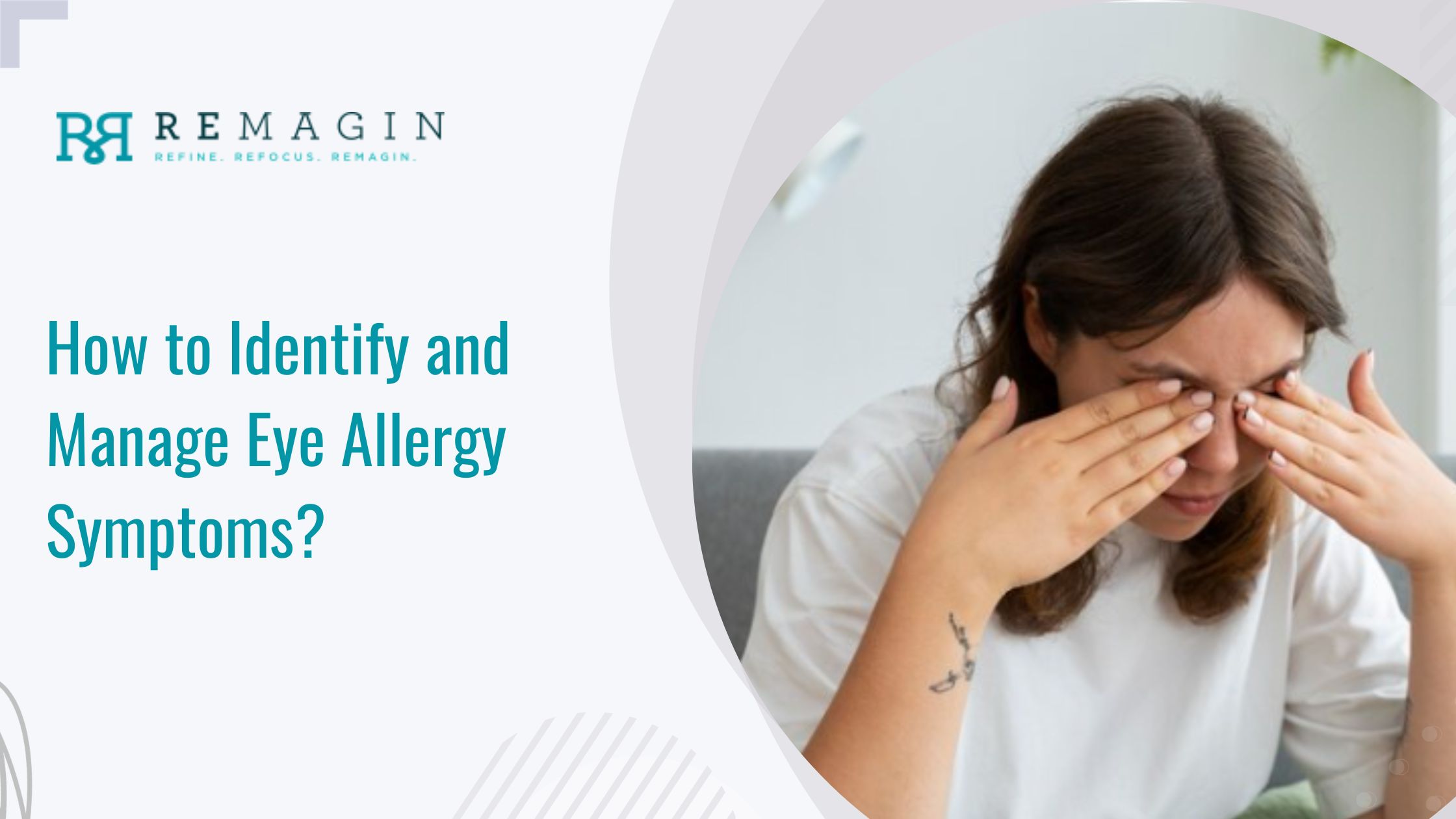



Eye allergy (allergic conjunctivitis) is when your eyes respond to an irritating substance or an allergen. They generate histamine to fight off the allergen, which could cause your conjunctiva and eyelids to swell, itch, burn, and turn red and watery. Nevertheless, like other conjunctivitis, eye allergies are not communicable. Though eye allergies are common, affecting 40% of the population, they can impact your quality of life and rarely affect your vision if left untreated for an extended period.
Let us discuss the causes, triggers, symptoms, and prevention of eye allergies so that you can quickly manage the condition effectively, maintaining healthy vision.
Depending on the type of eye allergy you have, your symptoms will differ. Here are allergic conjunctivitis types and their specific symptoms:
Seasonal allergic conjunctivitis (SAC) occurs only in the fall, summer, or spring and can be caused by plant pollens in the air. On the other hand, perennial allergic conjunctivitis (PAC) results from household allergens (pet dander, dust mites, etc.) and can affect anyone at any time during the year. Both share similar symptoms, but PAC signs are milder than SAC.
Their symptoms include:
Contact lens irritation or the proteins from tears binding to the lens surface can cause contact allergic conjunctivitis.
Its symptoms include:
It is a serious eye allergy that mostly affects young men and boys. While vernal keratoconjunctivitis can affect year-round, its symptoms can aggravate in specific seasons. If not treated, it can affect your vision.
Its symptoms include:
This condition typically affects older men with a history of allergic dermatitis. Leaving it untreated can cause scars in the cornea and its membrane.
Its symptoms include:
It is a severe form of contact allergic conjunctivitis, which can cause pimples or fluid sacs in the inner eyelid’s upper lining.
Its symptoms include:
Common triggers of eye allergies include:
Besides, here are other factors that can cause eye allergies:
Your eye doctor will examine your eye to check whether you have allergic conjunctivitis or infection. Upon suspecting an eye allergy, they will use a slit-lamp microscope to check for symptoms, such as redness, swollen blood vessels, etc.
If your diagnosis is unclear or your allergies worsen, they may order a specific test to look for a particular type of white blood cell in your eye. To check this, they will gently scrape the small portion of your conjunctiva and test this tissue for those white blood cells.
Eye allergy treatment options vary depending on your symptoms and can include:
These are used for short-term relief but may not resolve all symptoms.
These can effectively treat eye allergies, providing targeted relief for both short-term and long-term.
Antihistamine and Mast Cell Stabilizer Eye Drops: Resolve eye allergy symptoms and prevent them.
Containing small amounts of allergens, these shots provide immunity to resist the substances that cause allergic conjunctivitis. As it can take some months to produce the desired results, you may need to take medications to relieve your symptoms.
You can prevent eye allergies by:
Although eye allergies are common, taking quick action is crucial to maintaining optimal eye health. Treating the associated symptoms and discomfort can prevent potential complications while enhancing your quality of life. So, visit your eye specialist for appropriate treatment if you develop any signs of eye allergies.
Are you struggling to battle redness, itching, and watery eyes caused by allergies? Stop by Remagin for customized, high-quality eye allergy treatment. Our ophthalmologist, Dr. Deepak Raja, has years of expertise and experience in treating eye allergies with desired results, ensuring immediate relief. Contact us today to get your eye allergies resolved effectively.